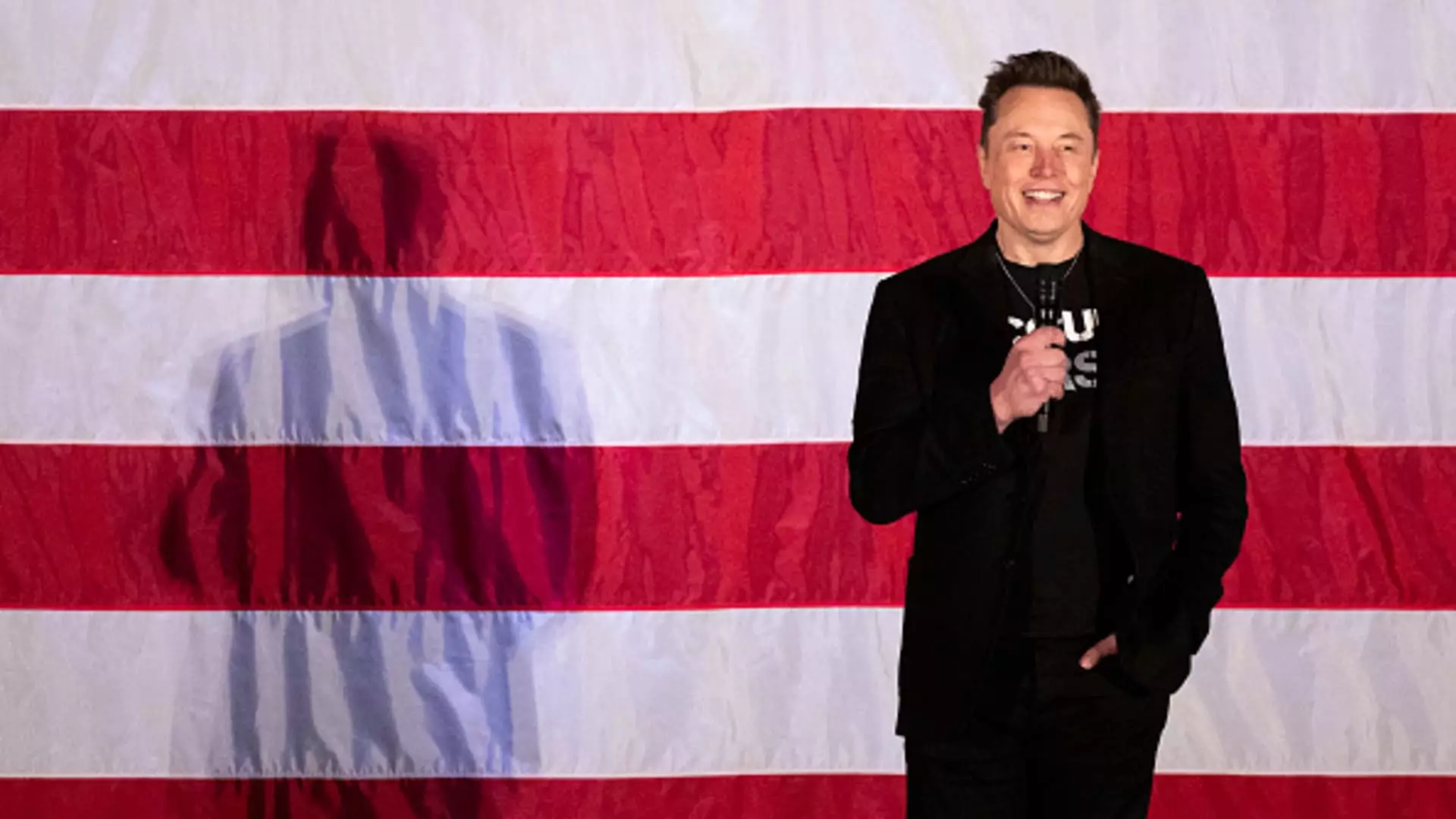As the presidential election draws nearer, the political landscape in the United States becomes increasingly contentious, with political maneuvers often straddling the line between innovative engagement and potential legal violations. A case in point is the recent lawsuit filed by the Philadelphia District Attorney’s Office against Elon Musk and his political action committee, America PAC. This lawsuit raises significant questions regarding election integrity, the ethics of voter engagement, and the legal boundaries of political contributions and incentives.
At the core of the lawsuit is the accusation that Musk and America PAC are orchestrating what could be deemed an illegal lottery. The Philadelphia District Attorney, Larry Krasner, asserts that the PAC’s initiative to offer a $1 million prize to registered voters in swing states—conditional upon providing personal identifying information—constitutes a lottery, thus invoking potential violations of Pennsylvania law. According to Krasner, such a scheme not only misleads voters but also threatens the integrity of the electoral process, which is supposed to remain free of manipulative practices that might hinder genuine democratic participation.
The concept of leveraging cash incentives to motivate voter engagement is not new, but Musk’s approach raises alarms that go beyond typical grassroots campaigning. The stipulation requiring voters to pledge their personal information in exchange for a chance to win money draws parallels to tactics often employed in lottery operations, leading Krasner to argue that this initiative should be subjected to stringent regulation in accordance with state laws governing lotteries.
The ethical implications of such a giveaway cannot be understated. Musk’s financial prowess enables him to exert influence over the electoral process in a manner that smaller candidates or grassroots organizations cannot. This disparity raises significant concerns about the fairness of competition in the electoral arena. Moreover, the presumption that monetary incentives can effectively galvanize voter participation may trivialize the voting process, reducing it to a transactional exchange rather than a fundamental civic duty.
As Krasner highlights, the practice also poses a risk of misleading voters. The act of asking potential voters to share their personal data—and making them feel like they could be financially rewarded—could obscure the broader purpose of voting, which is to express individual beliefs and contribute to the democratic fabric of society. Instead, participants may view their voting rights through the lens of incentive-based outcomes, rather than as a privilege and responsibility.
In light of the ongoing controversy, the U.S. Department of Justice has warned America PAC that its money giveaway may violate federal election law. This federal scrutiny adds another layer of complexity to the situation, highlighting that the implications of such a practice extend beyond state regulations to encompass federal election laws designed to prevent undue influence and ensure fair electoral campaigns.
Krasner’s lawsuit seeks a preliminary injunction, which would prohibit Musk and his PAC from continuing this initiative until the matter can be thoroughly adjudicated. This move underscores the legal challenges posed by tactics that could potentially undermine not only state regulations but also public trust in the democratic process.
Responses from notable figures, including President Joe Biden, have further painted the initiative in an unflattering light. Biden’s quip about being “registered” to claim the $1 million underscores a broader critique of the inappropriateness of such tactics in a democratic society. His remarks suggest a prevailing sentiment that while engagement is crucial, the methods employed to stimulate that engagement warrant careful examination.
The legal battle surrounding Musk and America PAC serves as a striking reminder of the delicate balance between innovative political engagement strategies and the rules designed to ensure a fair electoral process. The outcome of this lawsuit may not only shape the electoral landscape within Pennsylvania but could also set a precedent affecting similar initiatives nationwide. As the lines blur between modern campaigning and manipulation, it is imperative that both voters and policymakers remain vigilant to preserve the integrity of the democratic process. The implications of this case resonate with broader conversations about the ethical dimensions of political funding and engagement strategies in an era increasingly dominated by money and high-profile influencers.


Leave a Reply